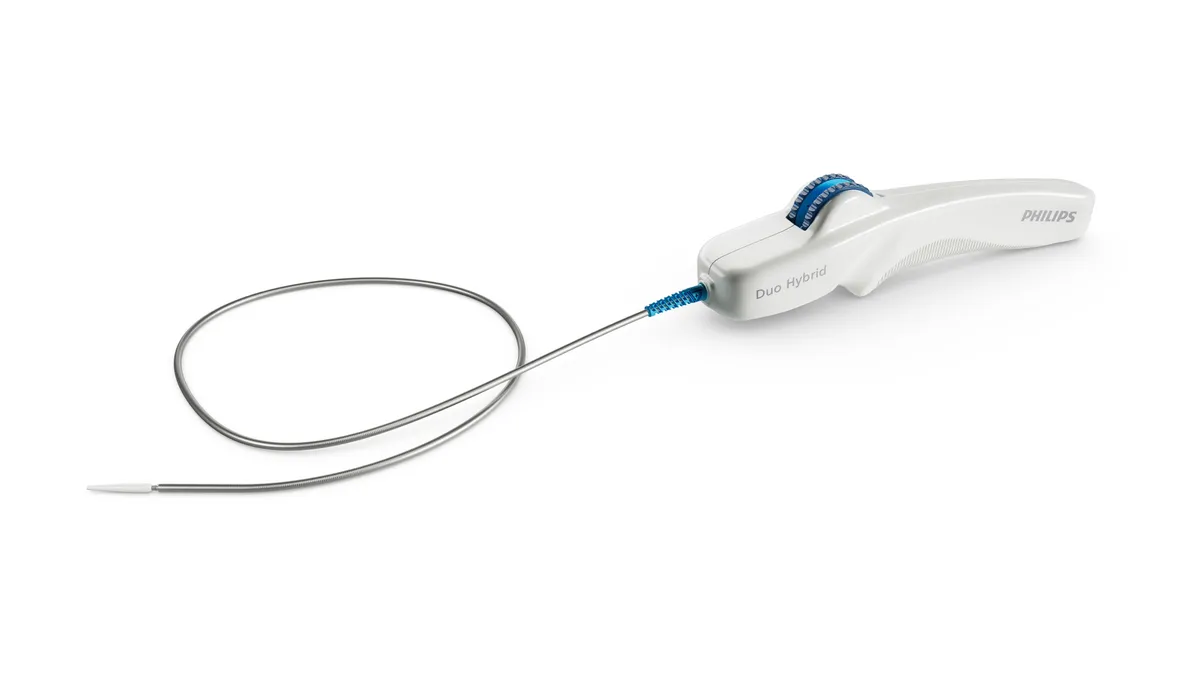Dive Brief:
- Philips has launched its Duo Venous Stent System in the U.S. to treat patients with blockages in their veins, the company said Wednesday.
- The implant, which won approval in December, is designed to address the root cause of chronic deep venous disease and comes in two forms for use in different types of veins.
- Philips acquired the device in its 2022 takeover of Vesper Medical. The company paid 227 million euros upfront for Vesper to expand its image guided therapy business.
Dive Insight:
The Duo Venous Stent System is a portfolio of self-expanding stents mounted on disposable delivery devices. Vesper designed the stents to increase the diameter of obstructed veins. Restoring blood flow could improve quality of life by alleviating symptoms of venous disease, which include pain, swelling and discoloration of skin. Philips tracked improvements on observational quality-of-life endpoints in a trial of the device.
Using data from the trial and other sources, Philips secured premarket approval from the Food and Drug Administration in December. Philips was required to pay Vesper up to 44 million euros contingent upon FDA approval.
A surgeon used the device for the first time outside of a clinical trial this week, marking the launch of the product and the start of commercial use. The device is part of an image-guided therapy unit that Philips sees as central to its prospects, as CEO Roy Jakobs said at the company’s annual general meeting in May.
“We are concentrating our resources more on the areas where we have strongest positions and can accelerate growth and expand margins more quickly, such as image guided therapy, monitoring, ultrasound and personal health,” Jakobs said.
Philips framed the Vesper acquisition as a way to expand its image guided therapy unit when it first disclosed the deal in 2021.
Philips has grown the unit’s peripheral vascular portfolio through acquisition. The Vesper takeover happened around 15 months after Philips disclosed the acquisition of Intact Vascular. Buying Intact gave Philips control of an implantable device used in the treatment of patients with peripheral artery disease.













